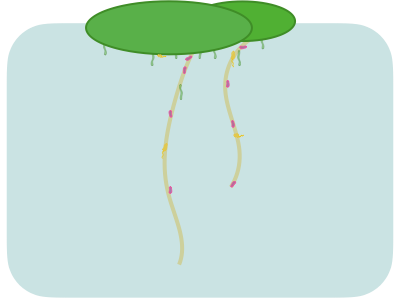Whose trait is it anyways?
We keep finding ways beneficial microbes affect traits of the organisms on which they live. I, @ChandraJack1, @symbiomics & @ME_Frederickson ask the obvious follow-up: how do traits evolve when selection acts on variation in both host and microbe genomes? Our manuscript is out now at ProcB
One key insight is that counter-intuitiively, conflict can increase mutualism.
When hosts and microbes have fitness peaks at different trait values, this evolutionary conflict can actually cause hosts to depend MORE on microbes for optimal trait expression, thereby enhancing the degree of mutualism we would obsesrve.
Another key insight is that the evolution of traits in multiple genomes may favor local adaptation. If hosts are paired with microbes with which they did not share an evolutionary history, this would likely lead to trait mis-expression and appear as a signal of increased fitness with local microbes.
Previous post
Anna quoted in the Christian Science Monitor
Next post
Contaminants from human activities are ecological stressors
